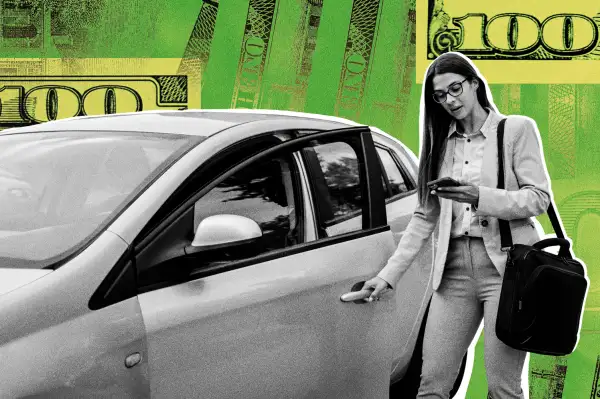Late Car Payments Are Piling Up at Record Levels as More Drivers Face Delinquency

Americans are falling behind on auto loan payments amid sky-high car costs and economic pressures, such as rising unemployment, that are straining household budgets.
A record share of subprime borrowers are delinquent on car payments, according to new data from Fitch Ratings in a series that dates back to the '90s. (The credit rating agency defines "delinquent" as 60 days late or more; subprime borrowers are those with credit scores of 640 or lower.)
Fitch's index shows that U.S. subprime auto delinquencies reached 6.65% in October — a series high going back over 30 years. A year ago, that percentage was 6.23%.
A separate report from the New York Fed also indicates that car loan borrowers are struggling to make payments. The report's auto loans data shows the percentage of the total auto balance at least 90 days delinquent was 5.02% in the third quarter. That's a level not seen since 2020.
The recent bankruptcy of subprime auto lender Tricolor Holdings — along with the bankruptcy of a car parts company First Brands — has corporate execs like JPMorgan Chase CEO Jamie Dimon worried.
"My antenna goes up when things like that happen," he said on a recent call with analysts. "I probably shouldn’t say this, but when you see one cockroach, there are probably more."
The New York Fed data shows that the percentage of auto loans transitioning into serious delinquency (defined as 90-plus days delinquent) was 2.99% in the third quarter — a 15-year high.
"Maybe some people are overextended because they bought cars during the period of high prices that they couldn’t afford," a New York Fed researcher said on a Nov. 5 press call.
Why auto loan delinquencies are rising
A Kelley Blue Book report released Wednesday pegged the average new car cost at $49,766 in October.
But subprime borrowers tend to shop in the used market. According to Experian, less than 6% of new auto loans were extended to subprime borrowers in the second quarter. For used lending, the share was over 22%.
Outside of auto loans, the overall consumer credit picture is not so bleak, according to the New York Fed.
"Household debt balances are growing at a moderate pace, with delinquency rates stabilizing," Donghoon Lee, an economic research advisor who worked on the report, said in a news release last week.
While credit conditions are tightening for subprime auto loan borrowers, car lenders continue to offer financing incentive deals to people with higher credit scores. If you're soon to be in the market for a car, improving your credit could be the key to securing a vehicle you can afford.
More from Money:
Best Auto Refinance Companies of 2025
Why America's Richest Millionaires Don't Consider Themselves ‘Wealthy’
